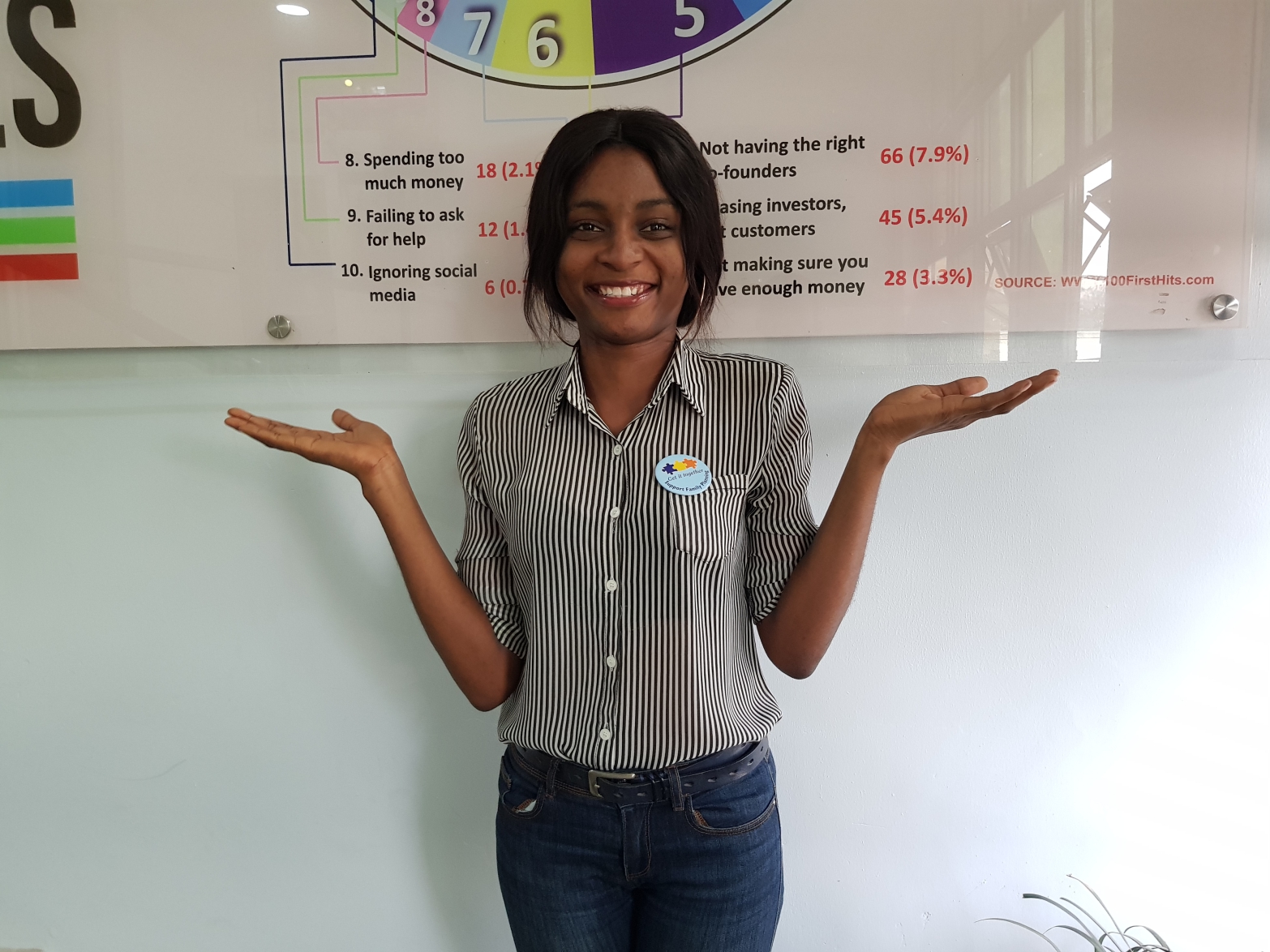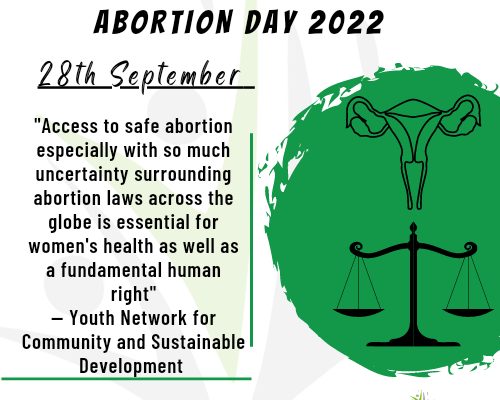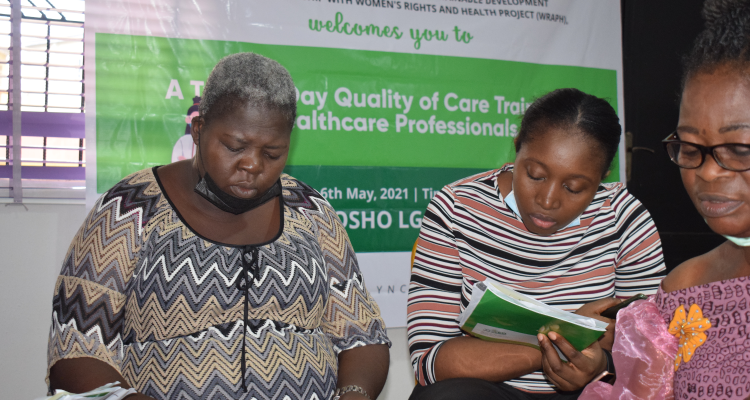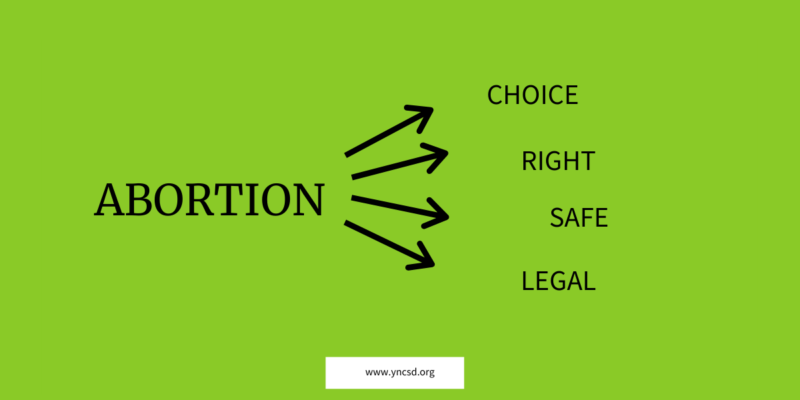As the world commemorates the Zero Tolerance Day, the Youth Network for Community and Sustainable Development (YNCSD) joins the rest of the world to restate it’s committed to engaging young people as change makers to support the elimination of Female Genital Mutilation/Cutting in Nigeria. The engagement of young people is vital in discussions as the issue borders on key global concerns such as human rights, gender based violence and young people’s sexual and reproductive health.
What is FGM/C?
Female genital mutilation consists of the (partial or complete) removal of the external female genitalia, and the infliction of other injuries to the female genitalia for no medical reasons. There are several variations, including partial or complete removal of the clitoris, of the labia minora and majora, the narrowing of the vaginal opening by joining the two sides of the wound, leaving only a small opening for urine and menstrual fluids, and any other non-medical injury such as scraping, incising, pricking or burning. Female genital mutilation causes pain, infection, problems with sexual intercourse, problems with urination, problems with childbirth, and death.
Reports indicate that an estimated 19 million women in Nigeria have undergone FGM/C and 200 million women worldwide. A European Union forecast on the practice of FGM across 25 countries states that if the practice continues at the current pace, 68 million girls will be cut between 2015 and 2030 in 25 countries where FGM is routinely practiced and data available.
February 6 was unanimously adopted at the International Conference on Zero Tolerance to FGM organized by IAC from February 4 to 6, 2003 in Addis Ababa, Ethiopia. Further, the UN Resolution A/RES/67/146 on FGM ”Intensifying global efforts to end FGM” adopted on 20 December 2012, confirmed February 6 as the International Tolerance Zero Day to FGM.
What does YNCSD do to address the issue?
YNCSD tackles FGM through robust advocacy and community engagement programmes in practicing communities. Our projects have applied innovative approaches such as social and behavioural change communications, engagement of non-SRHR allied professionals and community-based anti-FGM champions, led by young people to learn, unlearn and relearn harmful social norms. Furthermore, creating dialogue sessions with communities using an approach is open and non-judgmental have proven to lead to positive attitudinal shifts in communities where we have worked in. Our efforts also improved access to support for survivors and capacity building of practitioners.
Sharing knowledge through advocacy and communications
Estimates show that there may be as many as 200 million victims of female genital mutilation (FGM) worldwide, including at least 19 million in Nigeria. YNCSD continues to conduct research and disseminate findings (resources can be found on our website) to members of the public about the potential harm associated with the practice. In 2017, under our TSON I project funded by Amplify Change, we focused on transforming social norms through advocacy and communications across 4 states in Nigeria. The project saw the engagement of the Circumcissers Association of Nigeria as well as Religious leaders as key influencers to end the practice. In 2018, in partnership with Orchid Project and with support from Amplify Change, we conducted a Knowledge Sharing Workshop for organisations working on ending FGM/C in Nigeria. The Knowledge Sharing Workshop is based upon the ‘six elements for the abandonment of FGC’ developed by UNICEF using academic theory and lessons learned from such field experiences as Tostan in Senegal. These six key elements can contribute to transforming the social convention of cutting girls and encourage rapid and mass abandonment of the practice. An underlying theme is application and the workshop concluded with how learning may be adopted and used within the activities of participating organizations. Deliverables of the workshop included:
- To promote the concept of non-judgemental open dialogue in advocacy and community mobilisation targeted at addressing social norms underpinning female genital mutilation/cutting.
- To share knowledge on best practices and create safe spaces for survivors to tell their stories and be at the forefront in speaking against the practice of FGM/C I their communities.
- To develop the capacity of organisations working on FGM/C in communications and knowledge sharing.
Scaling up advocacy
Prevention of FGM is essential and largely depends on the existence of policies guiding behavior and practices. Just recently, we launched the TSON II project which will focus transforming social norms that underpin the continued practice of FGM/C in 4 states in Nigeria. To achieve this; the project will work closely with traditional rulers and influential religious leaders, young people and the traditional cutters themselves to change norms, attitudes and expectations at the community level towards ending FGM/C. The Project will work with Ministries of Education across the four states to advocate for the inclusion of FGM/C into state education curriculum. For states where this has already been included, advocacy efforts will be targeted at implementation of the curriculum as well as building capacity of school teachers on the subject matter.
What happens next?
The Youth Network for Community and Sustainable Development will continue to work with partner, key linkages and stakeholders to ensure the abandonment of female genital mutilation. We are also setting up a social media interactive site where we can share best practices, ask and address questions and disseminate findings based on research conducted. We also commit to working with boys and men via awareness raising campaigns and promoting the diseemination and interpretation of the Violence Against Persons Prohibitions (VAPP) Act 2015 to key agencies and CBOs.
Nnamdi Eseme
Senior Technical Adviser, YNCSD




